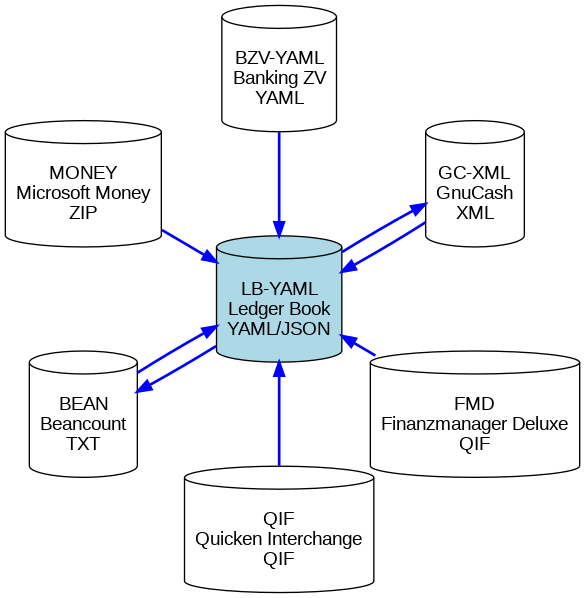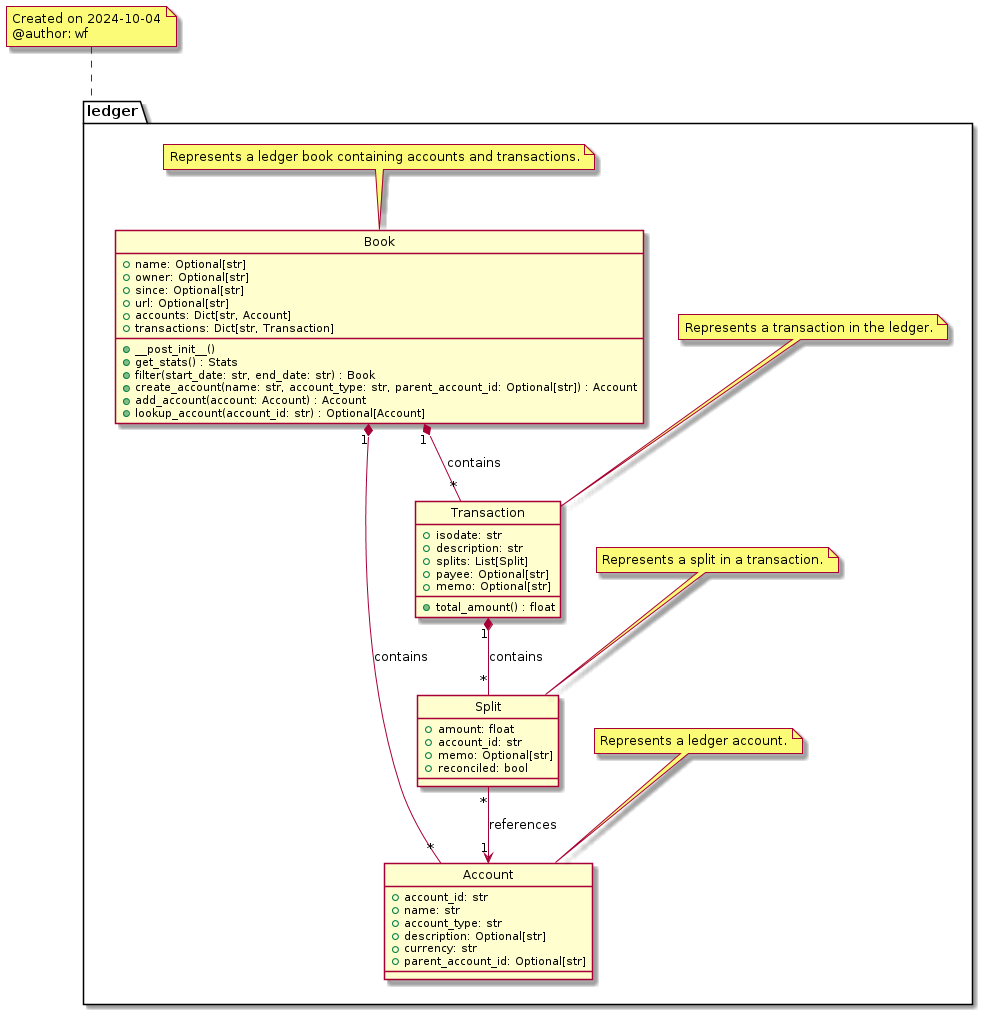personal accounting tool with file conversion
pynomina is intended as a personal accounting swiss army knife
In the past decades the author used different personal accounting tools:
the pain the conversion between those tools created was finally big enough to do something about it.
- use a computer and human readable ledger format that is ready to survive decades
- convert from and to the formats of the tool of choice
- allow for simple sanity checks and reports
- allow for systematic tidy up
- allow for integration into a larger organizational knowledge graph
The pyNomina tool follows a Hub and Spoke model for conversion between different personal accounting file formats. The Ledger Book (YAML/JSON) format acts as the hub, with each supported format serving as a spoke. This setup simplifies conversions by allowing data to be transformed from any spoke to the hub and then to any other spoke format.
| Format | Type | Description | Wikidata Entry |
|---|---|---|---|
| Ledger Book YAML/JSON | Hub | Main format of pyNomina for converting between formats. | Ledger Book |
| Beancount | Spoke | A plaintext accounting format. | Beancount |
| GnuCash XML | Spoke | An XML-based format used by GnuCash. | GnuCash |
| Microsoft Money | Spoke | Zip File exported with mny_export script using mdb-tools | Microsoft Money |
| Finanzmanager Deluxe (QIF) | Spoke | A variant of QIF used by Finanzmanager Deluxe. | Finanzmanager Deluxe |
| Quicken Interchange Format | Spoke | Quicken Interchange Format (QIF) | Quicken |
| pyNomina Banking ZV YAML | Spoke | A format for exporting banking data in YAML or JSON. | Banking ZV |








